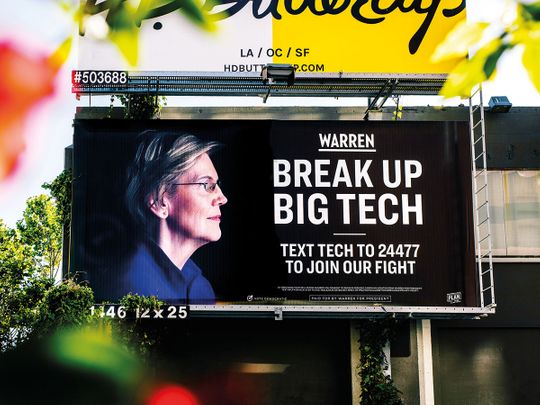
Washington: For years, antitrust activists have targeted the companies for what they see as abuses of their dominant positions in search, retail commerce, web hosting, mobile apps, operating systems and other parts of our online world. The development now show that those views have penetrated the thinking of antitrust enforcers and policymakers in the United States, who will soon join their international counterparts in investigating the power of the companies and finding ways to fix any possible abuses they find.
Roger McNamee, a prominent Silicon Valley investor who has spent the last two years shuttling to Washington to sound the alarm about the tech industry’s problems, says he’s celebrating signs that an era of inertia on tech regulation is coming to an end.
“This is going to be really hard,” McNamee said. “History tells you it’s going to be disappointing before it’s done. But it’s a start.”
Jessica Powell, Google’s former communications lead, wrote on social media: “As much as I want to see some regulation of tech, I dread what it’s going to look like. The problem with so much regulation is that it comes in late, it comes in hard, and it often looks more backward rather than forward.”
But there’s also cause for concern during this antitrust moment, Kara Swisher, a longtime Silicon Valley journalist and co-founder of the tech news publication Recode, said.
“The very same agencies and legislators now screaming for blood have for decades ignored any sensible regulation of Silicon Valley, afraid of killing the golden geeks,” Swisher wrote. “Now, though, they are coming in with guns blazing in a way that looks thoughtless and is likely to prove pointless. They remind me of a legal-pad-carrying Avengers team that’s going to take a lot of what’s good about tech down with what’s bad.”
However, McNamee warned that if Washington is serious about changing Big Tech, lawmakers will have to consider an entirely new regulatory regime. The government needs greater enforcement capacity, as well as modernised antitrust laws that could be applied to 21st century business models, he said.
1) Implement platform curbs: Hal Singer, an economist at Georgetown University, says regulators should apply the same regime to Facebook and Amazon as they do to integrated US cable companies such as Comcast and put rules in place stopping them from using their dominant platforms to promote their adjacent products and services.
2) Set up an overseeing agency: Other tech experts propose an approach similar to that of Yale professor Fiona Scott Morton, who has, among other things, suggested creating a new agency that would oversee the tech monopolists and, if necessary, force Facebook and others to allow their users to move their data elsewhere.
3) Enforce structural separation: Even more ardent pro-enforcement folks say structural separation is the only real cure. Force Facebook to sell Instagram and WhatsApp, Amazon to spin off Amazon Web Services and so on. This, they say would bolster competition and consumer freedom. Chris Hughes, a Facebook co-founder, has said the company must be broken up in order to solve its problems. But most lawmakers and global regulators have stopped short of supporting the break-up of any tech company.












